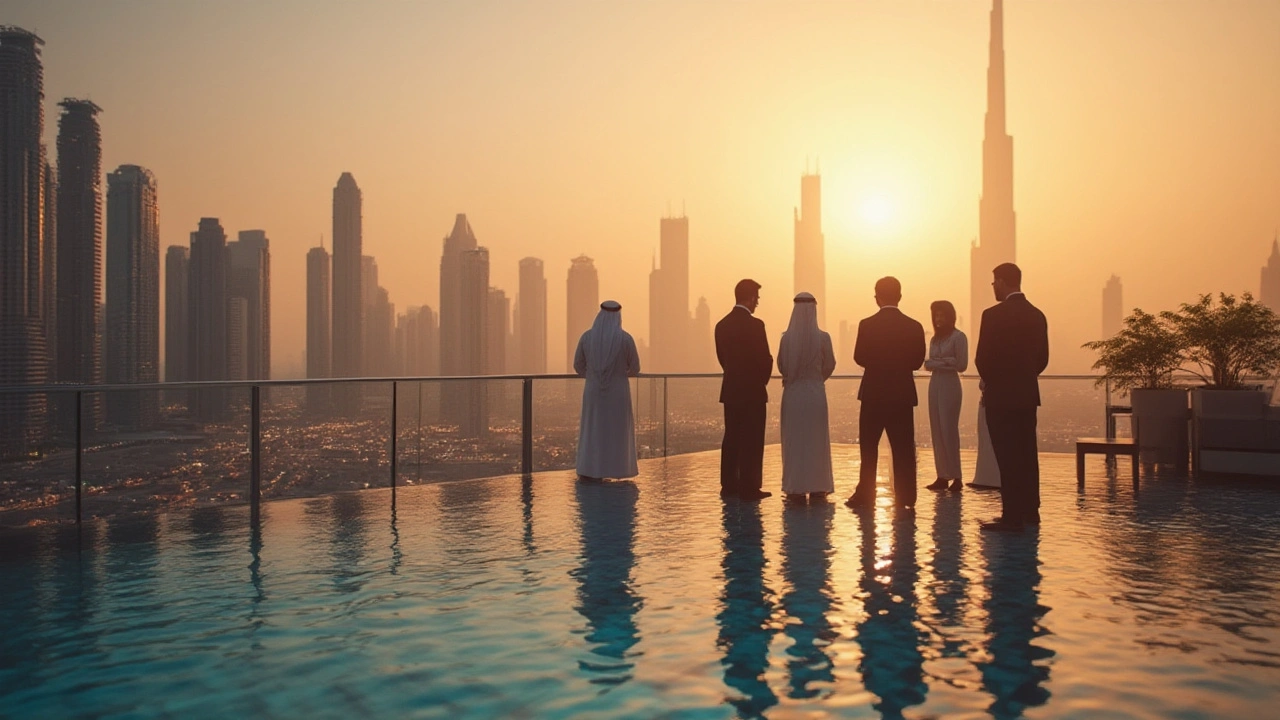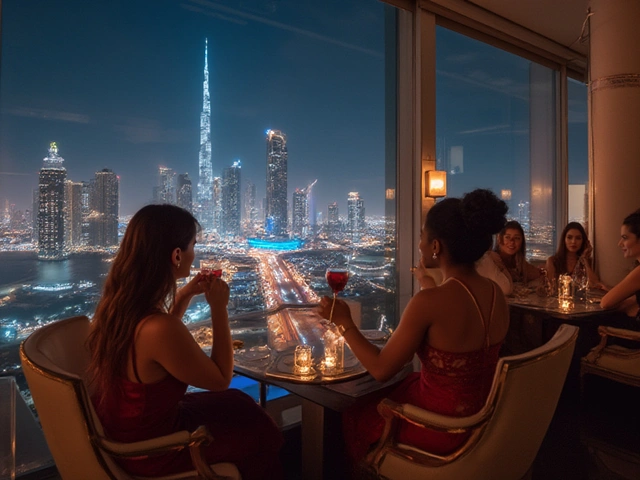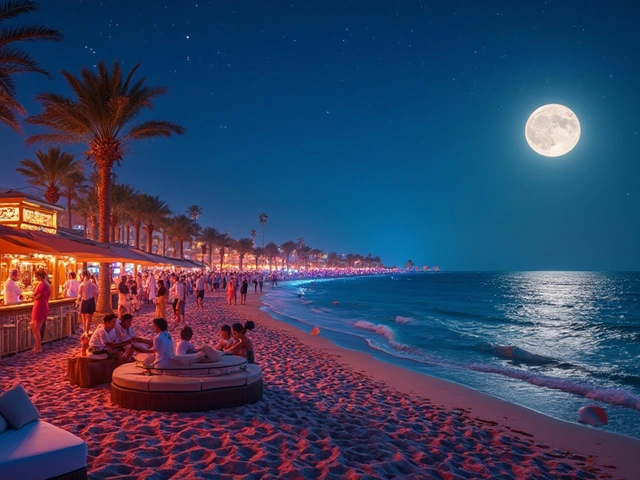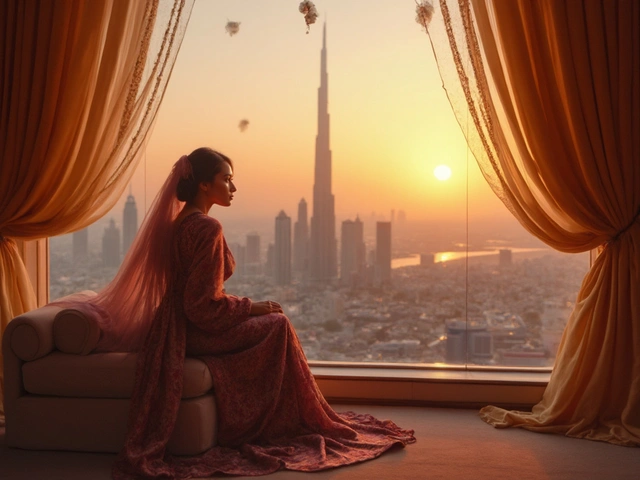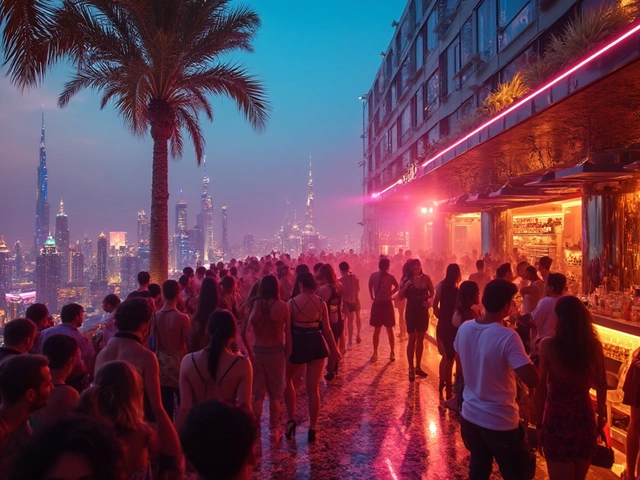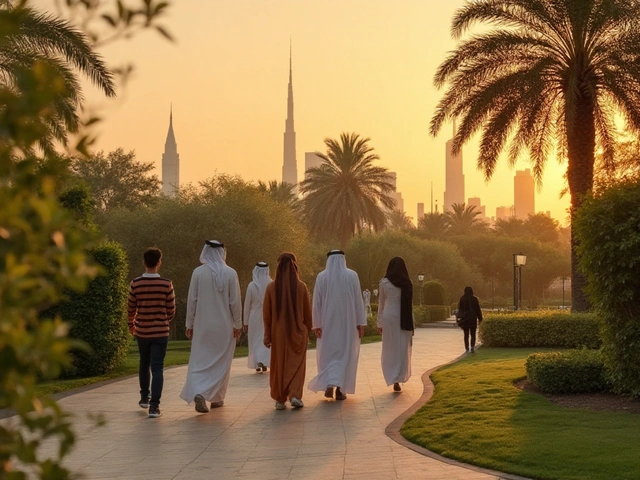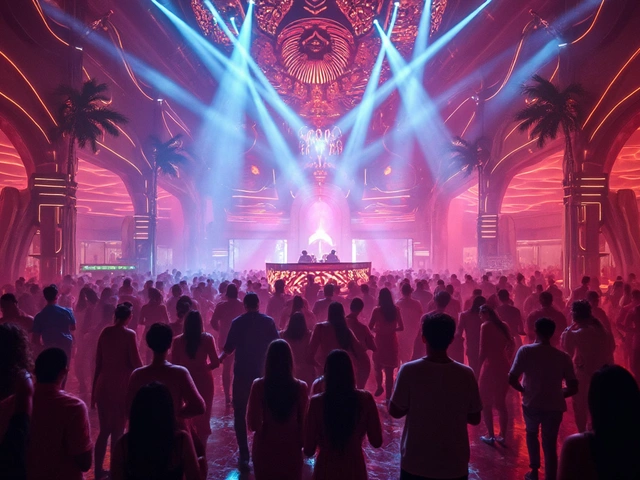When you walk through the streets of Dubai, it almost feels like the city’s constantly reinventing itself. Towering glass skyscrapers share corners with palm-shaped islands, while new neighborhoods seem to sprout up every year. Nowhere else in the world does real estate move with such imagination and ambition. Whether you’re looking for a sound investment or searching for a home, knowing who builds these wonders is half the battle. Dubai’s property scene isn’t just about luxury penthouses; there are oasis-style villas, cozy family apartments, beachfront pads, and futuristic office hubs. So let’s get real about who’s behind the landmarks and how to make the smartest choices as a buyer or investor.
Why Dubai’s Real Estate Market Attracts Global Attention
If you ever wondered why Dubai’s skyline draws both billionaires and everyday buyers, the answer is simple: tax-free perks, city-wide safety, and pure ambition. Property buyers here enjoy zero property or capital gains tax, which is pretty rare on this side of the globe. The city’s masterplanned neighborhoods come loaded with parks, schools, cycle tracks, and beach clubs, all humming with resident-friendly vibes—think of it as living on the set of a future-forward movie.
Another big draw is Dubai’s international attitude. With easy visa options (including ‘Golden Visas’ for big property buyers) and no restrictions for many expats, the city feels like a home base for the world. Add on year-round sunshine, a super-fast metro, and some of the lowest violent crime rates worldwide, and no wonder city planners from London to Los Angeles look to Dubai for ideas. As of mid-2025, the emirate is high on global indexes for livability, and real estate prices are still more attractive than cities like Singapore, London, or Hong Kong.
How to Choose a Real Estate Company in Dubai
Not all Dubai real estate companies are created equal, and choosing blindly can cost you. You’ll want to focus on reputation—are they known for delivering on time and keeping promises? Check out their portfolio: Did the same developer build Dubai’s coolest towers or have experience with family-friendly neighborhoods?
Transparency is another dealbreaker. Look for developers with clearly stated prices, maintenance fees spelled out, and no mystery costs buried in the fine print. It’s also smart to see if they offer strong post-sales support—think property management, rental services, or help with snagging repairs. In Dubai, the best names usually hold multiple industry awards, and they’ll be easy to find (RERA certification is a must!).
Emaar Properties
This is Dubai’s answer to global names like Trump or Lendlease. Emaar is best known for ambitious flagships: Burj Khalifa, The Dubai Mall, Downtown Dubai, and a massive chunk of Dubai Marina. Even non-investors know Emaar’s name since their communities set the standard in safety, schools, retail, and green spaces.
Emaar’s properties often sell for a premium, but buyers get stable rental yields and top-tier facilities. They specialize in master-planned townships, with ongoing projects like Dubai Hills Estate (golf, parks, and top-rated schools) or Arabian Ranches (gated villa heaven). Investors tend to like their off-plan launches for strong capital appreciation over the years.
Damac Properties
Damac isn’t shy about its high-rolling style. Think penthouses with designer labels (Fendi, Cavalli), branded hotel-residences, and golf villa resorts. This developer pushed the idea of super-luxury living into the mainstream, with projects like Damac Hills, Akoya Oxygen, and Soho-styled towers in Business Bay.
The company has won international awards for architecture and amenities. Damac projects draw in business travelers, wealthy expats, and short-term rental buyers. They tend to focus on wow-factor—sky pools, wellness gyms, private cinemas—so prices are steeper. If you love statement living, this is your brand.
Nakheel
If you’ve ever seen those wild palm-shaped islands from the airplane, that’s Nakheel. They’re also responsible for The World Islands and Deira Islands, redefining what land reclamation can do. Nakheel blends iconic engineering with resort-style living—think Palm Jumeirah villas, Palm Tower, or large, leafy family communities on the mainland.
Even their retail spaces, like Nakheel Mall or The Pointe, are lifestyle magnets. Residents who want beach access, on-site marinas, and big water views tend to gravitate to Nakheel’s developments. Yes, the price tags are on the higher side, but these are truly unique homes you won’t find anywhere else.
Dubai Properties
Dubai Properties is owned by Dubai Holding, so you know you’re dealing with one of the city’s legacy builders. This team focuses on sprawling neighborhoods meant for year-round living, not just splashy holidays. Their communities—like Jumeirah Beach Residence (JBR), Business Bay, and Mudon—are filled with schools, parks, and leisure spots perfect for families or long-term expats.
They’ve also led the way in reimagining the Dubai Creek and Business Bay waterfronts. Prices here are typically more competitive for the quality and location, attracting upwardly mobile professionals and growing families.
Azizi Developments
Azizi specializes in what they call “affordable luxury.” Their projects stretch across major growth corridors: Al Furjan (perfect for commuters), Palm Jumeirah, and Midtown in Dubai Production City. If you want a new-build apartment on the metro line without breaking the bank, Azizi is a name to know.
They stand out for speed of delivery, and many first-time buyers or investors in mid-market brackets choose Azizi. Expect modern amenities like gyms, pools, and covered parking, but at nicer price points than the high-rollers’ brands.
Sobha Realty
This company is the gold standard for building quality. Sobha doesn’t just subcontract; they oversee every step, from pouring the foundation to finishing the bathrooms. Their flagship, Sobha Hartland, is in the heart of Mohammed Bin Rashid City—a huge zone with villas, waterfront apartments, schools, and parks minutes from Downtown.
Prices at Sobha are premium, but so is the finish. Investment-wise, people looking for lasting value or fuss-free maintenance tend to favor Sobha.
Ellington Properties
If you wanted your home to look like a magazine spread, Ellington Properties is your pick. Their portfolio covers art-inspired, boutique buildings in JVC, MBR City, and Downtown. Every Ellington lobby, pool, or hallway is crafted by interior designers—these are homes for people who care about aesthetics as much as practicality.
Ellington appeals to young professionals, singles, and style-focused expats, with steady price appreciation as their boutique name grows. It’s a different kind of luxury, less about size and more about ambience and details.
Meraas
Meraas stands for creativity and urban cool. You’ll spot their work all over town in hotspots like City Walk (pedestrian malls, open-air restaurants), Bluewaters Island (home of Ain Dubai, that huge ferris wheel), or La Mer (laidback beach vibes). Their residential projects blend city buzz and resort living—think glassy apartments above trendy coffee shops or townhouses next to urban parks.
Meraas is for people who want their home and entertainment in the same postcode. Young buyers, jetsetters, and digital nomads love these address tags.
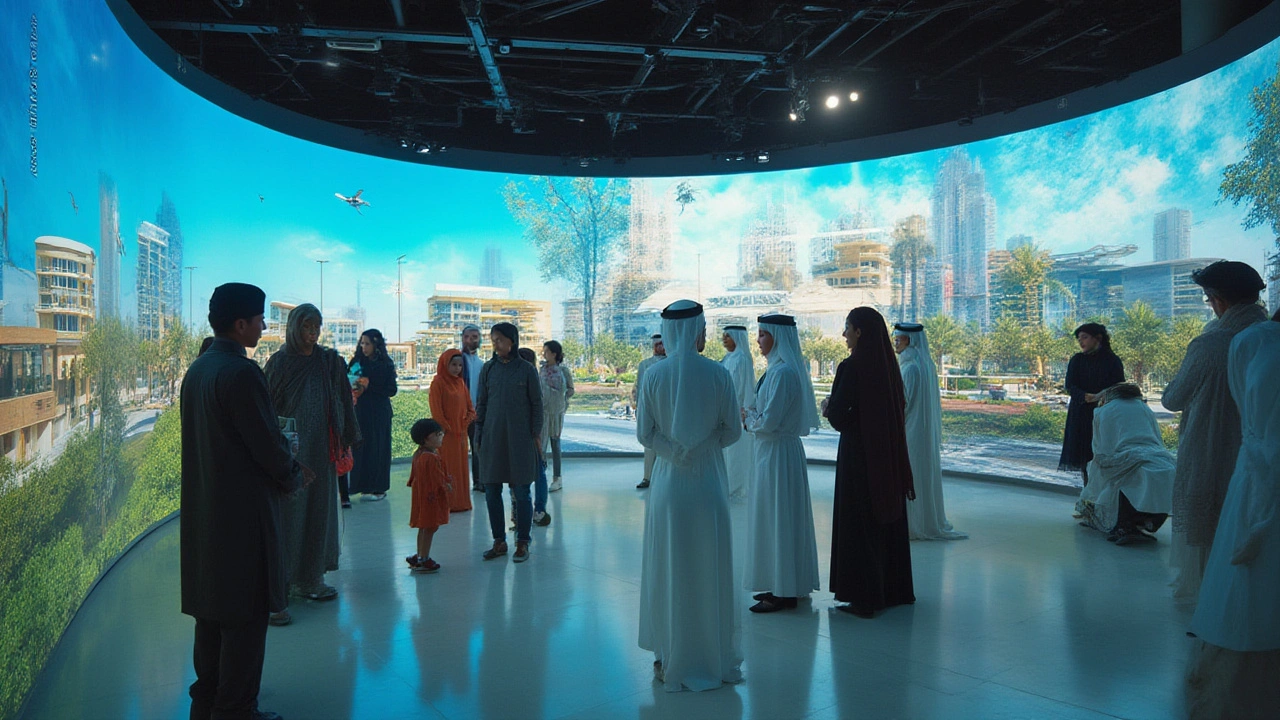
Wasl Properties
Few companies manage as broad a portfolio as Wasl. They run residential complexes, budget apartments, luxury hotels, and retail centers all over Dubai, but focus a lot on Deira, Karama, and the city’s older districts. Wasl is known for attentive property management and flexible leasing options.
If you want a home that’s central and close to both modern and historic Dubai, Wasl offers a lot of choice. They’re one of the first stops for long-term renters and new Dubai residents still deciding where to settle.
Danube Properties
Danube’s motto could be ‘Luxury for Everyone.’ They specialize in wallet-friendly apartments with all the trimmings—gym, pool, security—aimed squarely at the hardworking middle class and first-time buyers. Their launches in Al Furjan, JVC, and Arjan get snapped up fast by investors chasing strong rental yields.
Danube is famous for handy payment plans, often with low down payments. If you’re just entering Dubai’s market, they’re one of the best ways to get your foot in the door.
Comparison Table: Real Estate Companies in Dubai at a Glance
| Developer | Starting Prices (AED) | Main Areas | Target Buyers |
|---|---|---|---|
| Emaar | 1,300,000 | Downtown, Dubai Marina, Dubai Hills | Luxury, Investors, Families |
| Damac | 950,000 | Business Bay, Damac Hills, Akoya | Luxury, Short-term Investors |
| Nakheel | 1,200,000 | Palm Jumeirah, Deira, The World | Beachfront, Investors |
| Dubai Properties | 850,000 | Mudon, JBR, Business Bay | Families, Professionals |
| Azizi | 600,000 | Al Furjan, JVC, MBR City | Mid-market, Expats, First-buyers |
| Sobha | 1,350,000 | MBR City, Sobha Hartland | Luxury, End-users |
| Ellington | 900,000 | JVC, Downtown, MBR City | Design-focused, Boutique buyers |
| Meraas | 1,100,000 | City Walk, Bluewaters, La Mer | Lifestyle, Urban buyers |
| Wasl | 700,000 | Deira, Karama, Central Dubai | Renters, Central buyers |
| Danube | 525,000 | Al Furjan, Arjan, JVC | Budget-buyers, First-timers |
Which Areas in Dubai Are Best for Real Estate Investment?
When people ask me where to invest in Dubai, it’s never just one answer—each area plays by its own rules. Downtown Dubai is the superstar, packed with global tourists and business execs; property values hold strong and rental yields stay high. Dubai Marina and Jumeirah Beach Residence attract people who crave waterfront city living (think New York but sunnier, with a yacht club down the block).
Business Bay is a favorite for young professionals and high-rise office workers, while Dubai Hills Estate and Arabian Ranches are go-to choices for families wanting green lawns and top schools. Jumeirah Village Circle (JVC), Dubai South, and Al Furjan are picking up steam among budget-conscious buyers and those chasing new-build bargains. There’s also a growing buzz around MBR City, with luxury and boutique brands flocking in.
What Is the Difference Between a Developer and an Agency?
This stumps even Dubai locals. Developers are the folks who actually build the towers, villas, and communities—think Emaar, Nakheel, or Sobha. They handle project planning, design, construction, and eventually sell units either directly or through partners.
Agencies or brokerages, like Allsopp & Allsopp or Betterhomes, don’t build—they help you buy, sell, or rent units in any project from any developer. Good agencies can sniff out the best resale deals or help negotiate with off-plan launches, whereas developers are limited to selling their own inventory.
Can Expats Buy Property in Dubai?
Yes, you don’t have to be a UAE citizen or resident to own Dubai real estate. In approved ‘freehold’ areas (the list covers nearly all the city hot spots), foreign buyers can fully own property, sell it, or lease it out long-term—just like a local. Leasehold zones are less common; there, you get a 99-year lease rather than the land itself.
You’ll need a valid passport and a minimum investment amount (usually AED 750K and above for property-linked visas), but owning in Dubai doesn’t automatically require UAE residency. Legal protections are solid, with RERA and escrow accounts regulated by strict government frameworks.
Is It Safe to Invest in Real Estate in Dubai?
Dubai’s real estate market is among the most regulated in the region. Buyers’ money goes into secured escrow accounts, so developers can’t just disappear with your cash. RERA (Real Estate Regulatory Agency) sets strict standards—if a project’s late or has legal issues, RERA can and will step in to resolve or refund buyers.
Legal disputes are uncommon but manageable, with a transparent Land Department process and a specialized property court. As with any market, sticking to licensed developers and verified agents is the smartest way to avoid headaches.
How Much Does a Property Cost in Dubai?
Property prices depend on area, developer brand, and property type. As a rough guide: new-build apartments in JVC or Al Furjan start around AED 525,000 (about $143,000), while Downtown Dubai or Palm Jumeirah push north of AED 1.3 million for entry-level units. Villas in communities like The Springs or Dubai Hills start near AED 2 million, but ultra-luxe homes along the Palm can pass AED 10 million easily.
Off-plan units (yet to be built) usually cost less than ready homes, but you’ll wait for handover. The market sees 6-7% gross rental yields for well-chosen apartments, with some districts clocking above 10%—far higher than most Western cities right now.
Should You Work with a Real Estate Agent or Go Directly to Developers?
Going directly to a developer lets you get in on early-bird prices and payment plans—especially for off-plan purchases. However, agents can open doors to wider options, negotiate on your behalf, and help with paperwork, especially if you’re buying a resale or want rental management later.
If I don’t have my sights locked on a particular project, I use an agent to compare the market and cast the net wider. But if a new Emaar or Damac tower fits your needs, the developer sales team will give you everything you need, sometimes with added offers for direct buyers. It’s rarely an either-or—shop around, then pick the right path.
Tips for First-Time Property Buyers in Dubai
- Always check if the project and developer are RERA registered.
- Read the sales agreement—twice. Look for snagging clauses, delivery timelines, and penalty terms.
- Get a no-objection certificate and a recent service fee statement before buying a resale.
- Know your payment plan: off-plan usually requires a deposit, staged payments, and a final handover balance.
- Consider legal support, especially if the contract seems unclear or your purchase is off-plan.
- Bank finance is available for residents and some non-residents, with major banks offering mortgages up to 70-80% loan-to-value.
- Factor in closing costs (about 4-7% extra), including DLD fees, agent commissions, and NOC charges.
- Don’t skip snagging or inspection ahead of handover—reputable developers handle issues fast, but you need everything in writing.
- For rental yield, look for properties close to the metro or major job centers.
- Don’t rush; Dubai’s market is fast, but hasty decisions often lead to regret.
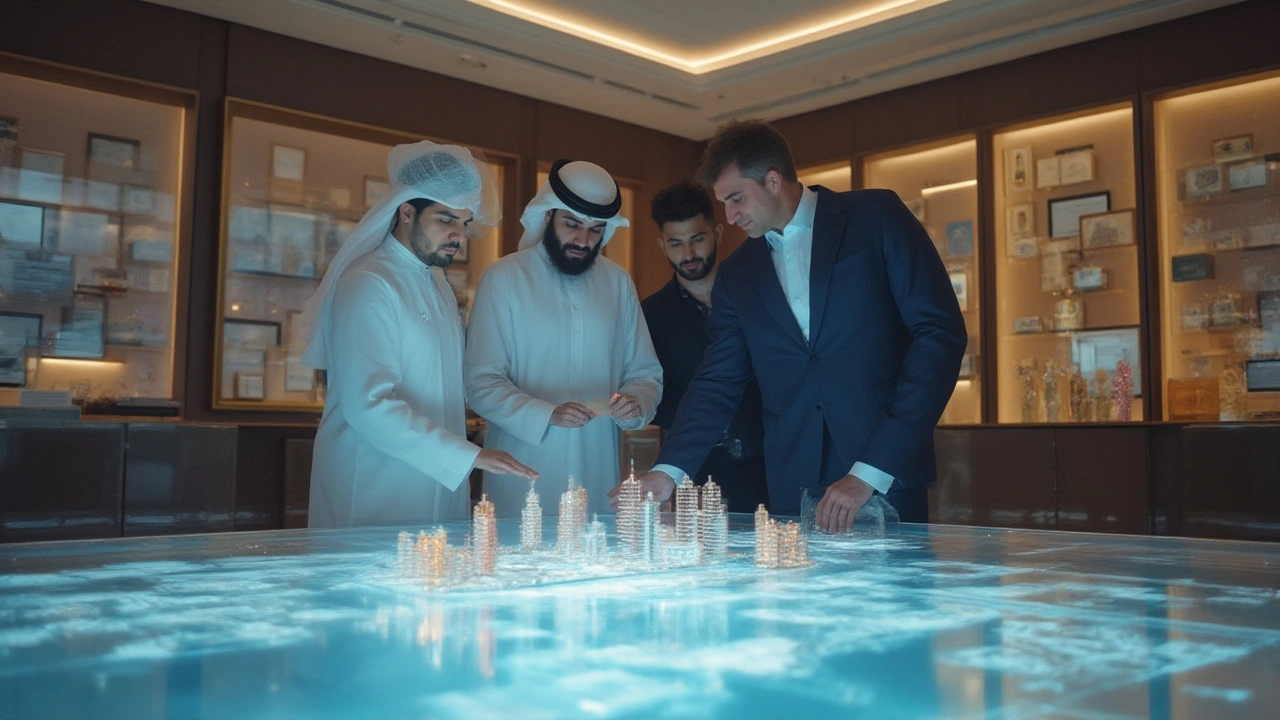
Frequently Asked Questions
What are the top real estate companies in Dubai?
Dubai’s top real estate names include Emaar Properties (Burj Khalifa, Dubai Marina), Damac (luxury branded towers), Nakheel (Palm Jumeirah, The World), Dubai Properties (family communities and waterfronts), Azizi (affordable new builds), Sobha (premium craftsmanship at Hartland), Ellington (design-first residentials), Meraas (lifestyle zones), Wasl Properties (central and affordable projects), and Danube (budget-friendly, mid-market homes). These brands lead the city in delivery, investor returns, and resale potential.
Which real estate company is best for luxury properties in Dubai?
Emaar, Sobha, and Damac claim the luxury throne. Emaar’s Downtown and Dubai Marina set the gold standard, Sobha’s Hartland specializes in ultra-crafted homes, and Damac’s branded towers attract celebrity buyers. All offer high-end finishes, show-stopping amenities, and prime locations near city landmarks.
Can foreigners buy property in Dubai?
Yes. Foreigners can buy in Dubai’s freehold zones, which include almost all the city’s most popular districts. Ownership is full and secure. You’ll need a valid passport; residency visas are optional but available for bigger investments.
What is the most affordable area to buy property in Dubai?
Jumeirah Village Circle (JVC), Dubai South, and Al Furjan are the best bets for affordable new apartments, with prices from AED 525,000 to AED 800,000 for studios and one-beds. These neighborhoods are filling up fast but still offer good choices for buyers on a budget.
How do I verify if a real estate developer is licensed in Dubai?
You can check a developer’s license with RERA (part of Dubai Land Department). Always make sure your deposit and installments are paid into an official escrow account attached to your project, and ask to see all government permits before signing anything.
Is it better to buy off-plan or ready property in Dubai?
Off-plan homes (not yet built) usually come cheaper and with easier payment terms, but delivery delays can happen. Ready homes mean you get the keys — and can start renting out — right away, though prices can be a bit higher. Both options are safe if you stick to top developers and hashed-out contracts.
Do I need a UAE bank account to buy real estate in Dubai?
No, a UAE bank account isn’t mandatory for straightforward cash purchases. However, if you’re getting a mortgage or paying ongoing service charges, having a local account can make transactions smoother.
Are there any hidden costs when buying property in Dubai?
Expect to pay for Dubai Land Department registration (4% of the property price), agency commissions (2-5%), service or maintenance fees (varies by building), and a Non-Objection Certificate (NOC) fee on resale purchases. Always get precise figures in writing to avoid surprises.
How long does it take to complete a property purchase in Dubai?
Buying a ready home can take 2-5 weeks: time for initial agreement, payment, and title transfer. Off-plan purchases are faster to agree but actual handover can take several years, depending on the construction pipeline.
Is buying property in Dubai a good investment in 2025?
As of 2025, Dubai’s property scene continues to offer top rental yields (6%+), surging international demand, and transparent legal protections. Mid-market neighborhoods and off-plan units from reputable developers remain popular, while luxury and beachfront districts are a steady target for long-term value. The biggest winners are those who research their developers, neighborhoods, and contracts ahead of signing.

